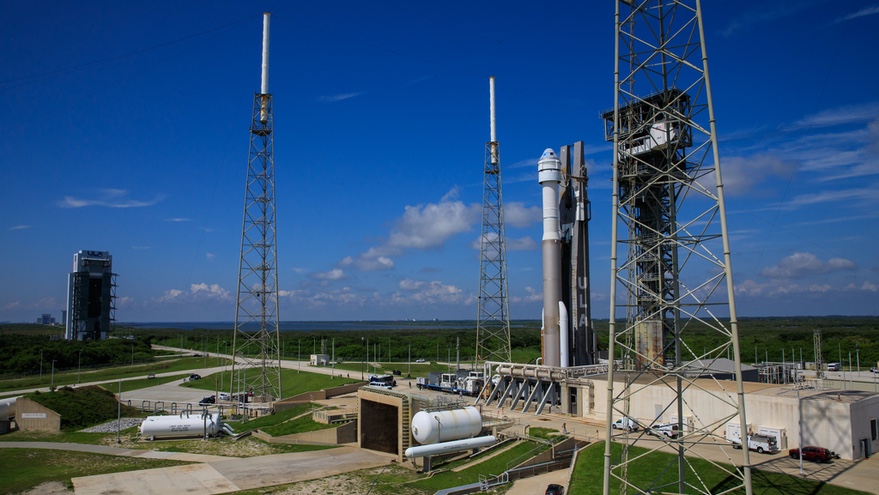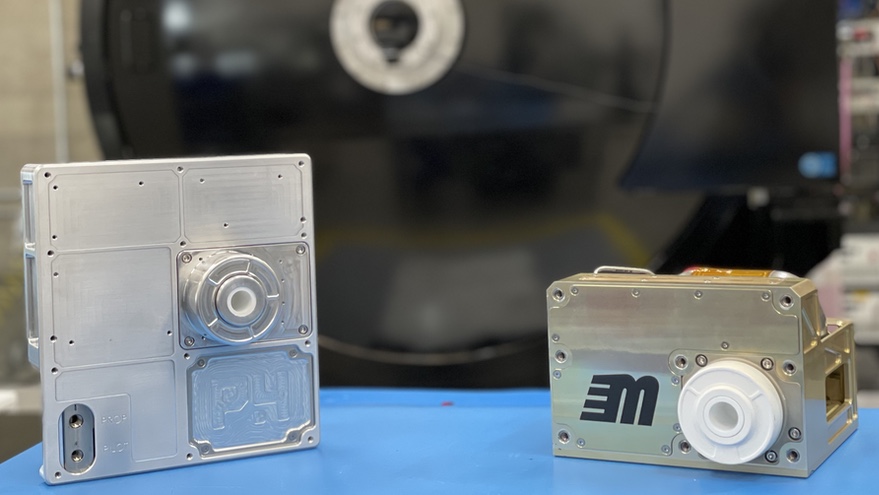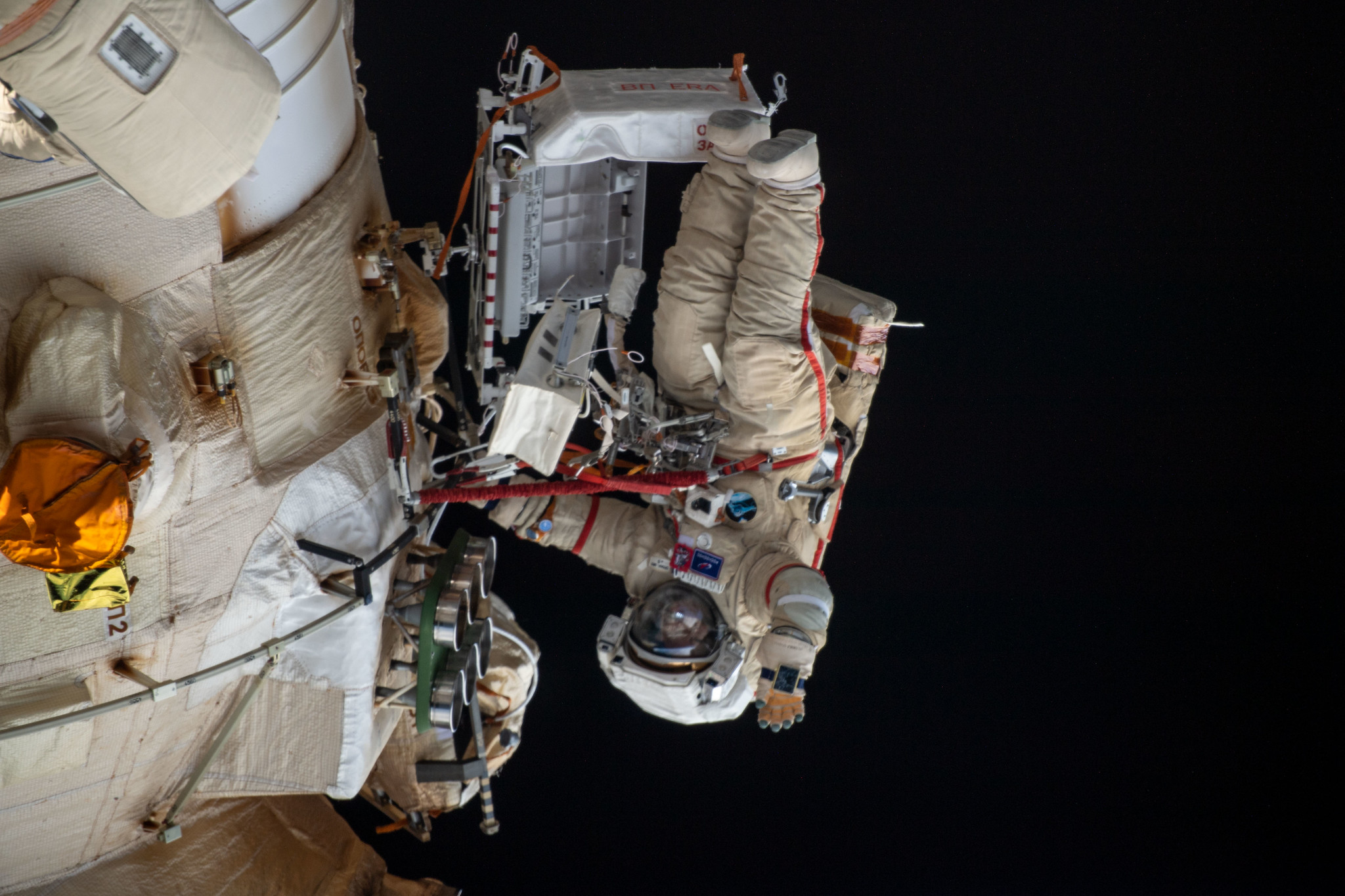NASA Sets Coverage for ULA, Astrobotic Artemis Robotic Moon Launch
As part of NASA’s CLPS (Commercial Lunar Payload Services) initiative and Artemis program, United Launch Alliance (ULA) and Astrobotic are targeting 2:18 a.m. EST Monday, Jan. 8, for the first commercial robotic launch to the Moon’s surface. Carrying NASA science, liftoff of ULA’s Vulcan rocket and Astrobotic’s Peregrine lunar lander will happen from Launch Complex […]
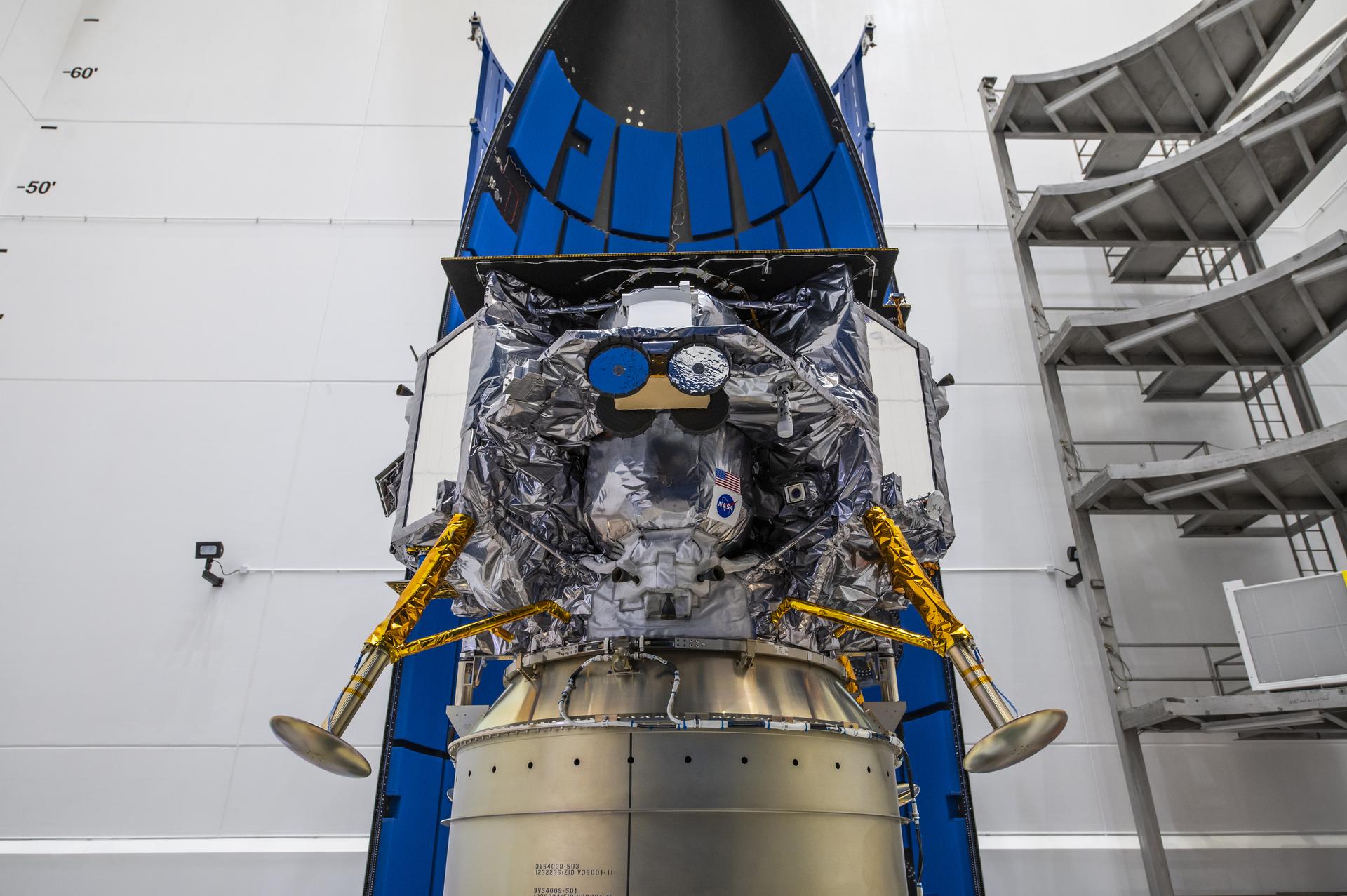
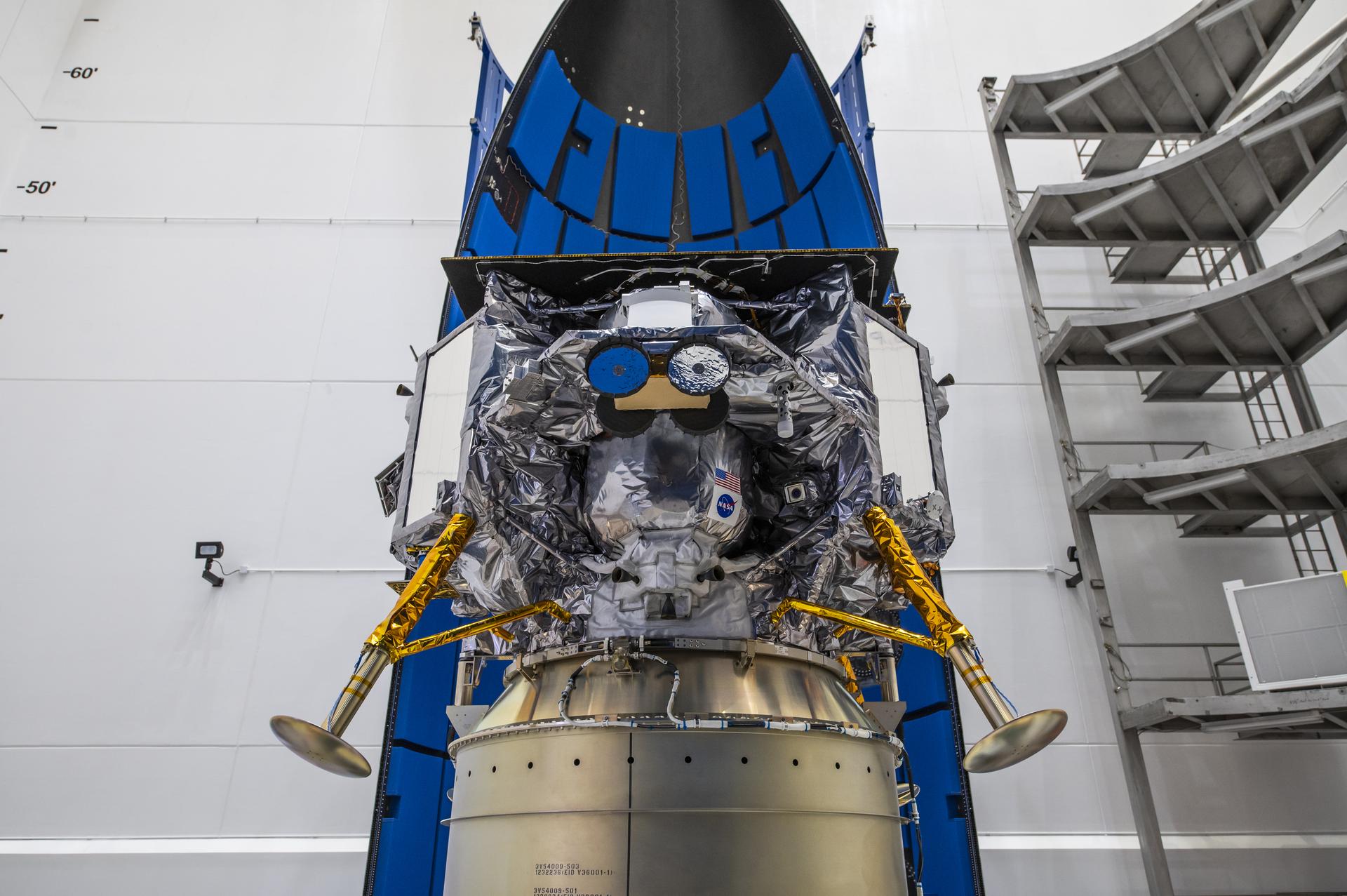
As part of NASA’s CLPS (Commercial Lunar Payload Services) initiative and Artemis program, United Launch Alliance (ULA) and Astrobotic are targeting 2:18 a.m. EST Monday, Jan. 8, for the first commercial robotic launch to the Moon’s surface. Carrying NASA science, liftoff of ULA’s Vulcan rocket and Astrobotic’s Peregrine lunar lander will happen from Launch Complex 41 at Cape Canaveral Space Force Station in Florida.
Live launch coverage will air on NASA+, NASA Television, the NASA app, and the agency’s website, with prelaunch events starting Thursday, Jan. 4. Learn how to stream NASA TV through a variety of platforms including social media. Follow events online at: https://www.nasa.gov/nasatv.
Peregrine will land on the Moon on Friday, Feb. 23. The NASA payloads aboard the lander aim to help the agency develop capabilities needed to explore the Moon under Artemis and in advance of human missions on the lunar surface.
Full coverage of this mission is as follows (all times Eastern):
Thursday, Jan. 4
11 a.m. – Science media briefing via WebEx with the following participants:
- Paul Niles, CLPS project scientist, NASA Headquarters
- Chris Culbert, CLPS program manager, NASA’s Johnson Space Center
- Nic Stoffle, science and operations lead for Linear Energy Transfer Spectrometer, NASA Johnson
- Anthony Colaprete, principal investigator, Near-Infrared Volatile Spectrometer System, NASA’s Ames Research Center
- Richard Elphic, principal investigator, Neutron Spectrometer System, NASA’s Ames Research Center
- Barbara Cohen, principal investigator, Peregrine Ion-Trap Mass Spectrometer, NASA’s Goddard Space Flight Center
- Daniel Cremons, deputy principal investigator for Laser Retroreflector, NASA Goddard
- Niki Werkheiser, director, Technology Maturation, Space Technology Mission Directorate, NASA Headquarters
Video of the teleconference will stream live on the agency’s website: https://www.nasa.gov/nasatv.
Media may ask questions via WebEx. For the dial-in information, please contact the Kennedy newsroom no later than 10 a.m. on Jan. 4, at: ksc-newsroom@mail.nasa.gov.
Friday, Jan. 5
3 p.m. – Lunar delivery readiness media teleconference with the following participants:
- Joel Kearns, deputy associate administrator for Exploration, Science Mission Directorate, NASA Headquarters
- Ryan Watkins, program scientist, Exploration Science Strategy and Integration Office, NASA Headquarters
- John Thornton, CEO, Astrobotic
- Gary Wentz, vice president, Government and Commercial Programs, ULA
- Arlena Moses, launch weather officer, Cape Canaveral Space Force Station’s 45th Weather Squadron
Audio of the teleconference will stream live on the agency’s website: https://www.nasa.gov/nasatv.
Media may ask questions via phone. For the dial-in number and passcode, please contact the Kennedy newsroom no later than 1 p.m. on Jan. 5, at: ksc-newsroom@mail.nasa.gov.
Monday, Jan. 8
1:30 a.m. – NASA TV launch coverage begins
2:18 a.m. – Launch
NASA launch coverage
Audio only of the news conferences and launch coverage will be carried on the NASA “V” circuits, which may be accessed by dialing 321-867-1220, -1240, or -7135. On launch day, the full mission broadcast can be heard on -1220 and -1240, while the countdown net only can be heard on -7135 beginning approximately at 1:30 a.m. when the mission broadcast begins.
On launch day, a “tech feed” showing a static shot of the launch pad without NASA TV commentary will be carried on the NASA TV media channel.
NASA website launch coverage
Launch day coverage of the mission will be available on the NASA website. Coverage will include live streaming and blog updates beginning no earlier than 1:30 a.m. on Jan. 8, as the countdown milestones occur. On-demand streaming video and photos of the launch will be available shortly after liftoff. For questions about countdown coverage on the Artemis blog for updates.
Attend launch virtually
Members of the public can register to attend this launch virtually. As a virtual guest, you have access to curated resources, schedule changes, and mission-specific information delivered straight to your inbox. Following each activity, virtual guests will receive a commemorative stamp for their virtual guest passport.
Watch, engage on social media
Let people know you’re following the mission on X, Facebook, and Instagram by using the hashtags #Artermis. You can also stay connected by following and tagging these accounts:
In May 2019, NASA awarded a task order for the scientific payload delivery to Astrobotic, which is on track to be one of the first of at least eight CLPS deliveries already planned. Through Artemis, NASA is working with multiple CLPS vendors to send a regular cadence of deliveries to the Moon to perform science investigations, test technologies, and demonstrate capabilities to help NASA explore the Moon before NASA sends the first astronauts to land near the lunar South Pole.
The deadline has passed for media accreditation for in-person coverage of this launch. The agency’s media accreditation policy is available online. More information about media accreditation is available by emailing: ksc-media-accreditat@mail.nasa.gov.
For media inquiries relating to the launch provider, please contact ULA’s communications department by emailing: media@ulalaunch.com. For media inquiries relating to the CLPS provider, Astrobotic, please contact Astrobotic’s communication department by emailing: contact@astrobotic.com.
X: @NASA, @NASAKennedy, @NASAArtemis, @NASAMoon
Facebook: NASA, NASAKennedy, NASAArtemis
Instagram: @NASA, @NASAKennedy, @NASAArtemis
Learn more about NASA’s CLPS initiative at:
Para obtener información sobre cobertura en español en el Centro Espacial Kennedy o si desea solicitar entrevistas en español, comuníquese con Antonia Jaramillo o Messod Bendayan a: antonia.jaramillobotero@nasa.gov o messod.c.bendayan@nasa.gov.
-end-
Karen Fox / Alise Fisher
Headquarters, Washington
202-358-1600 / 202-358-2546
karen.fox@nasa.gov / alise.m.fisher@nasa.gov
Nilufar Ramji
Johnson Space Center, Houston
281-483-5111
nilufar.ramji@nasa.gov
Antonia Jaramillo
Kennedy Space Center, Florida
321-501-8425
antonia.jaramillobotero@nasa.gov






















